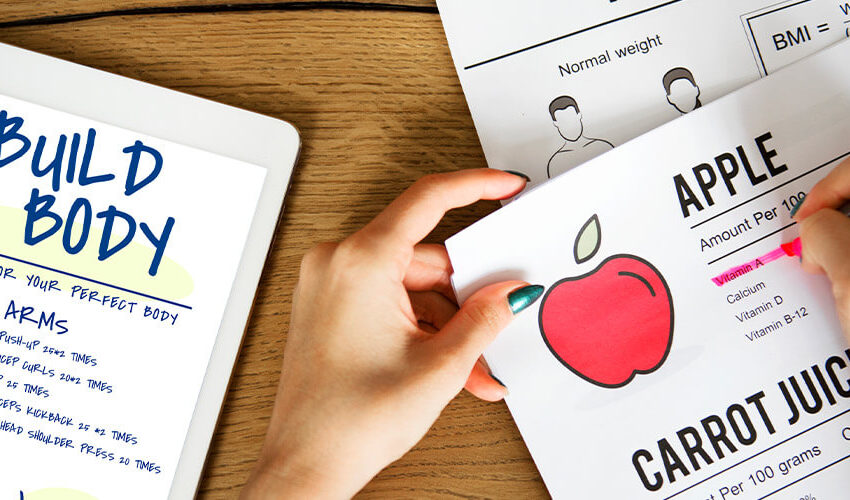
- February 9, 2024
- Balanced Diet
Achieving effective fat loss requires more than just crash dieting or extreme restrictions. It demands a well-structured and science-backed diet plan that optimizes nutrient composition, meal timing, and exercise. In this comprehensive guide, we will explore the technicalities and strategies behind the ultimate fat loss diet plan. Whether you’re starting your weight management journey or seeking to fine-tune your current approach, this guide will provide you with the tools to achieve your goals sustainably and enjoyably.
Understanding the Science of Fat Loss
Before diving into the specifics of a fat loss diet plan, let’s understand the underlying science of fat loss. The primary principle is creating a caloric deficit, wherein the body burns more calories than it consumes. This deficit prompts the body to utilize stored fat as an energy source, leading to fat loss over time.

Key Strategies for an Effective Fat Loss Diet Plan
Establishing a Caloric Deficit
The foundation of any successful fat loss diet plan is to establish a caloric deficit. Calculate your Total Daily Energy Expenditure (TDEE) and aim to consume 300 to 500 calories less than that value each day. This gradual approach ensures sustainable and steady fat loss without compromising on essential nutrients.
Optimal Macronutrient Composition
The macronutrient composition of your diet significantly impacts fat loss. Focus on the following:
- Protein: Protein plays a vital role in preserving lean muscle mass during fat loss. Include sources like lean meats, poultry, fish, legumes, and dairy products.
- Carbohydrates: Opt for complex carbohydrates such as whole grains, fruits, and vegetables. They provide sustained energy and essential vitamins and minerals.
- Fats: Incorporate healthy fats from sources like avocados, nuts, seeds, and olive oil. These fats support overall health and help control appetite.
Mindful Eating and Portion Control
Practice mindful eating to be more conscious of your food choices and eating habits. Listen to your body’s hunger and fullness cues, and avoid emotional eating. Additionally, practice portion control to prevent overeating and stay within your caloric goals.
Hydration
Stay well-hydrated throughout the day as it aids in digestion, helps control appetite, and supports overall well-being. Water is calorie-free and an excellent choice for hydration.
Nutrient Timing
Plan your meals strategically to optimize nutrient absorption and energy levels:
Pre-Workout Nutrition: Fuel your body with easily digestible carbohydrates and a small amount of protein before workouts to enhance performance and prevent muscle breakdown.
Post-Workout Nutrition: After exercise, consume a balanced meal with protein and carbohydrates to support muscle recovery and replenish glycogen stores.
Balanced Meals and Snacks
Distribute your daily caloric intake across balanced meals and snacks to maintain steady energy levels and avoid extreme hunger.

The Role of Exercise in Fat Loss
While diet is a critical aspect of fat loss, combining it with regular exercise enhances results and overall well-being. Incorporate a mix of cardiovascular exercises, strength training, and flexibility exercises to support fat loss, build lean muscle, and boost metabolism.
Creating a Sustainable Fat Loss Diet Plan
Sustainability is key to the long-term success of any fat loss diet plan. Follow these guidelines for creating a sustainable approach:
- Gradual Changes
Avoid drastic restrictions or extreme diets. Instead, make gradual changes to your eating habits that you can maintain in the long run. - Avoiding “Diet” Mentality
Adopt a lifestyle-focused mindset rather than a short-term “diet” mentality. Embrace healthy eating as a sustainable part of your daily routine. - Personalization
Tailor your fat loss diet plan to your preferences and lifestyle. Everyone is unique, and finding an approach that suits you will increase your chances of success. - Tracking Progress
Keep track of your food intake, exercise routine, and fat loss progress. Regular monitoring allows you to make adjustments as needed to stay on track.
Conclusion
Achieving fat loss and maintaining a healthy weight requires a comprehensive and science-backed approach. By implementing the strategies outlined in this ultimate fat loss diet plan, you can optimize nutrient composition, meal timing, and exercise to achieve your weight management goals sustainably and effectively. Remember, patience and consistency are key, and adopting a balanced lifestyle will lead to lasting results and improved overall wellness.
